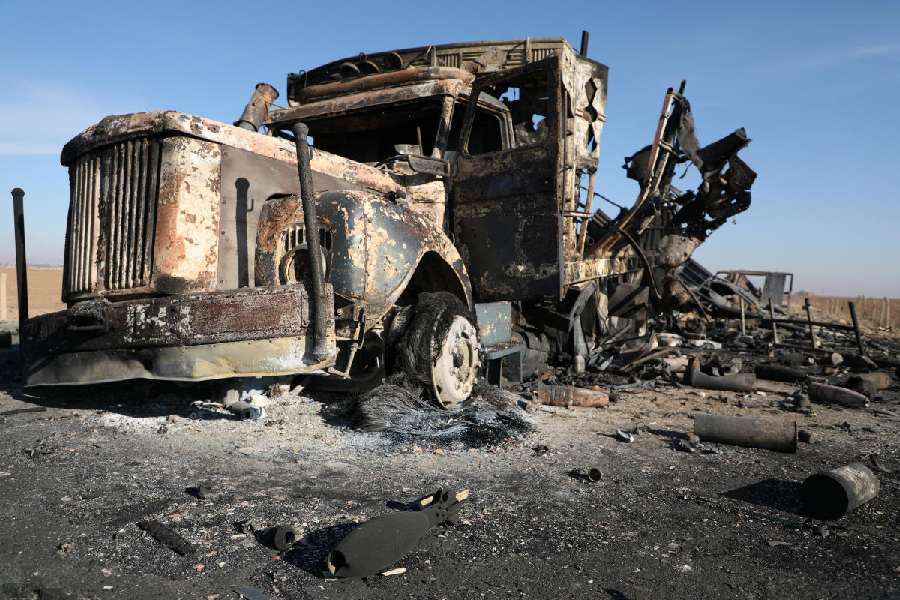The main commander of the fighters who toppled Bashar al-Assad said on Wednesday that he would dissolve the security forces of the former regime, close its prisons and hunt down anyone involved in the torture or killing of detainees.
Syrian rebel leader Ahmad al-Sharaa — better known as Abu Mohammed al-Golani — said in a statement to Reuters he will “dissolve the security forces of the previous regime and close the notorious prisons”.
Syria ran one of the most oppressive police states in West asia during five decades of Assad family rule. Sharaa, whose former al Qaida affiliate Hayat Tahrir al-Sham (HTS) is now the country’s most powerful force, must balance demands for justice from victims with the need to prevent violent reprisals and secure international aid.
Syrians have flocked to the infamous prisons where the Assad regime is estimated to have held tens of thousands of detainees, desperately looking for their loved ones. Some have been released alive, others were identified among the dead and thousands more have not yet been found.
Sharaa said in a separate statement on the Syrian state TV’s Telegram channel that people who took part in the torture or killing of detainees would be hunted down, and pardons were out of the question.
“We will pursue them in Syria, and we ask countries to hand over those who fled so we can achieve justice,” said Sharaa. The world is carefully watching to see if Syria’s new rulers can stabilise the country and avoid unleashing violent revenge, after a 13-year civil war fought along sectarian and ethnic lines.
Since Assad’s fall, 27-year-old Hayat al-Turki has been searching the abandoned cells of Syria’s most notorious prison, the vast Sednaya complex, for any sign of her missing relatives, including her brother who vanished 14 years ago.
“I was hopeful and optimistic to find someone from my missing prisoners - a brother, an uncle or a cousin — but I did not... I searched the whole prison,” she said.
Mohammad al-Bashir, the man installed by Sharaa’s fighters to lead an interim administration until March, said he aimed to bring back millions of refugees, create unity and provide basic services.
But the new administration has scant resources, he told Italian newspaper Il Corriere della Sera. “We have no foreign currency and as for loans and bonds we are still collecting data. So yes, financially we are very bad,” said Bashir, who previously ran a small rebel-led administration in a pocket of northwestern Syria.
Rebuilding Syria is a colossal task following the civil war that killed hundreds of thousands of people, reduced cities to ruins and left the economy gutted by international sanctions. Millions of refugees still live in camps after one of the biggest displacements of modern times. Foreign officials are warily engaging with the former rebels, although HTS remains designated a terrorist organisation by Washington, the UN, EU and others.










